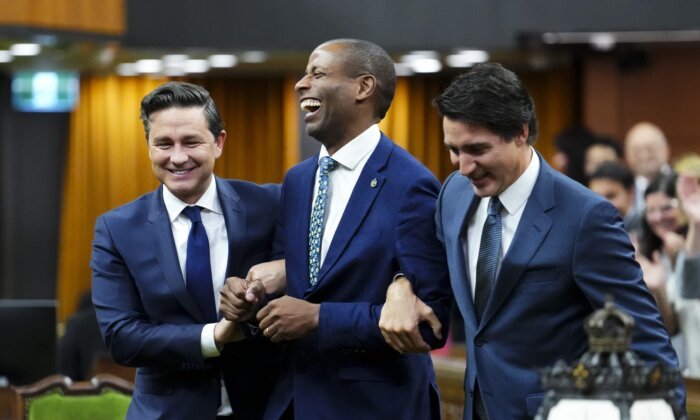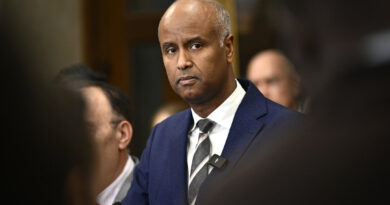Is the term ‘Wacko’ considered unparliamentary language? Taking a closer look at House of Commons rules
Canadians may be wondering about what constitutes unparliamentary language this week following Conservative Leader Pierre Poilievre’s expulsion from the House of Commons on April 30 for his choice of words.
Mr. Poilievre was asked to leave after referring to Justin Trudeau as a “wacko prime minister” during question period for supporting B.C.’s drug decriminalization policy.
When Speaker Greg Fergus requested him to withdraw his words, Mr. Poilievre offered to replace “wacko” with “extremist” or “radical,” but this was not accepted, leading to his removal from the House.
Former NDP Leader turned political analyst Tom Mulcair noted that “wacko” isn’t much different from the language used by the prime minister against Mr. Poilievre on the same day.
Mr. Mulcair rated “wacko” as a relatively mild term, similar to “spineless,” in terms of offensive language.
The Rules
The House of Commons rules state that the definition of unparliamentary language can vary depending on the context, tone, and intent of the speaker.
The responsibility of deciding what is acceptable behavior in Parliament largely falls on the Speaker, with an emphasis on respecting all members’ integrity.
According to the rules, offensive, provocative, or threatening language is prohibited, as are personal attacks, insults, and obscenities.
While “wacko” is not explicitly forbidden, terms like “idiot” and “stupid” are, as are phrases that accuse an MP of lying. “Spineless” may not be on the list, but similar expressions are discouraged.
Unparliamentary language has been a part of parliamentary history since the 1870s, with various terms like “political bully” making the list over time.
The list was expanded gradually, adding phrases like “dim-witted saboteur” in 1956 and “Canadian Mussolini” in 1964, totaling 106 words and phrases.
Infamous Incidents
One of the most well-known incidents of unparliamentary behavior occurred in 1971 when Prime Minister Pierre Trudeau was accused of using offensive language toward the opposition.
Similar instances involving profanity or disrespectful language have also been reported concerning current Prime Minister Justin Trudeau and other politicians over the years.
Observers emphasize the importance of maintaining decorum in the House of Commons, with efforts made to uphold standards of behavior by the Speaker and parliamentary leaders.





